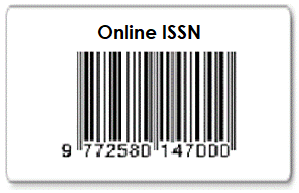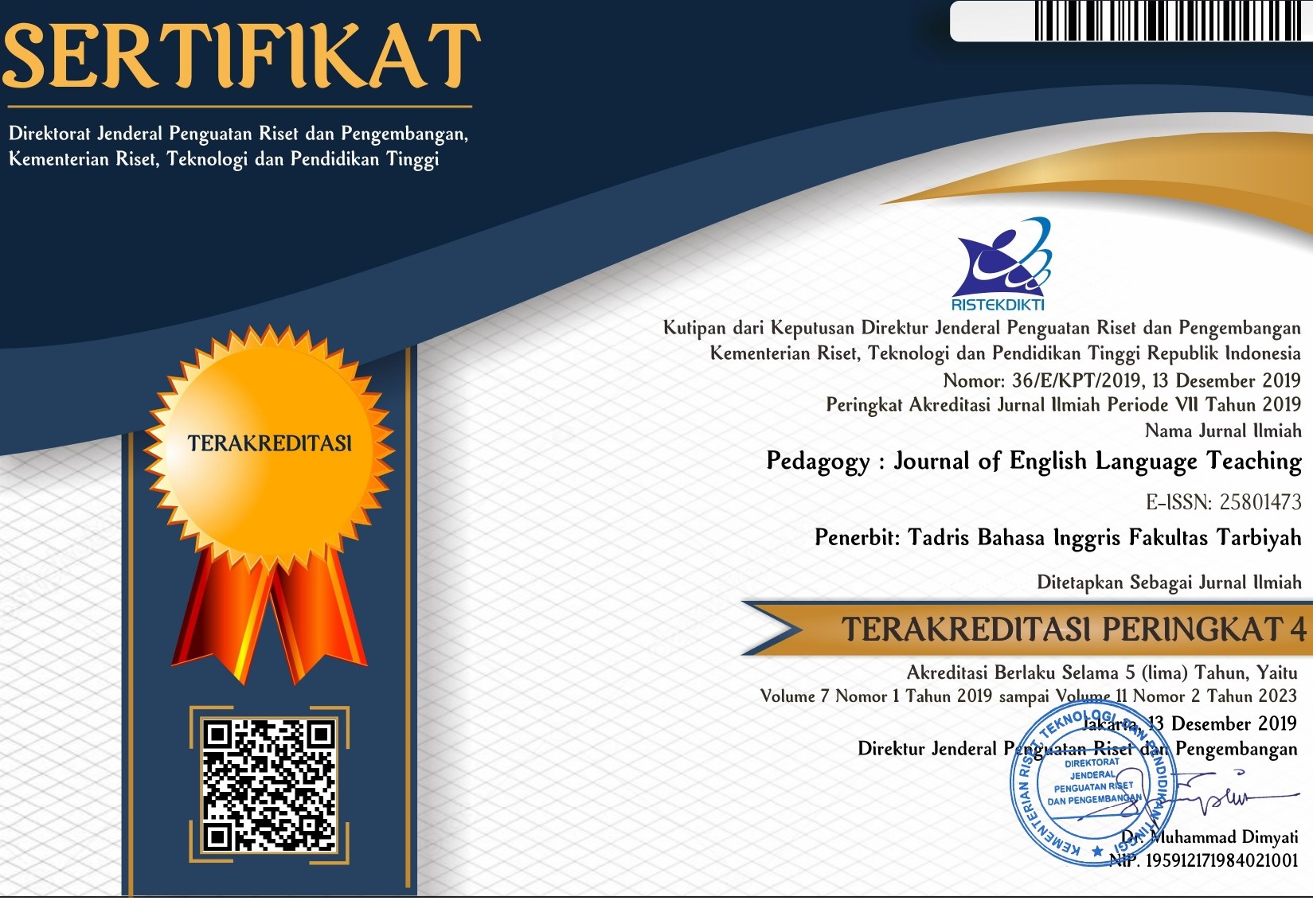EFL Students' Perspectives on the Use of Blog towards Their Writing Performance
DOI:
https://doi.org/10.32332/pedagogy.v8i2.1793Keywords:
blog, writing, perception, writing performanceAbstract
Obtaining English Foreign Language (EFL) students’ views dealing with their preferences of blog to assist their writing skills in practice is needed in order to make them more helpful in writing practice. This research aims at finding out significant correlation between students’ perspective on the use blog in writing activity and their writing performance. It is correlational study that correlates two variables: blog use and writing performance. The result of this research shows that there is no significant correlation between the students’ perception on blog use in writing activities with their writing performances. Although the students have high and positive perception toward blog use in writing actives done by the teacher in the class, it does not give high response to the students’ writing performance. It happens because some extraneous and possible factors may influence the result of this research. Finally, this research is expected to contribute towards enriching teaching approach knowledge in writing.
















